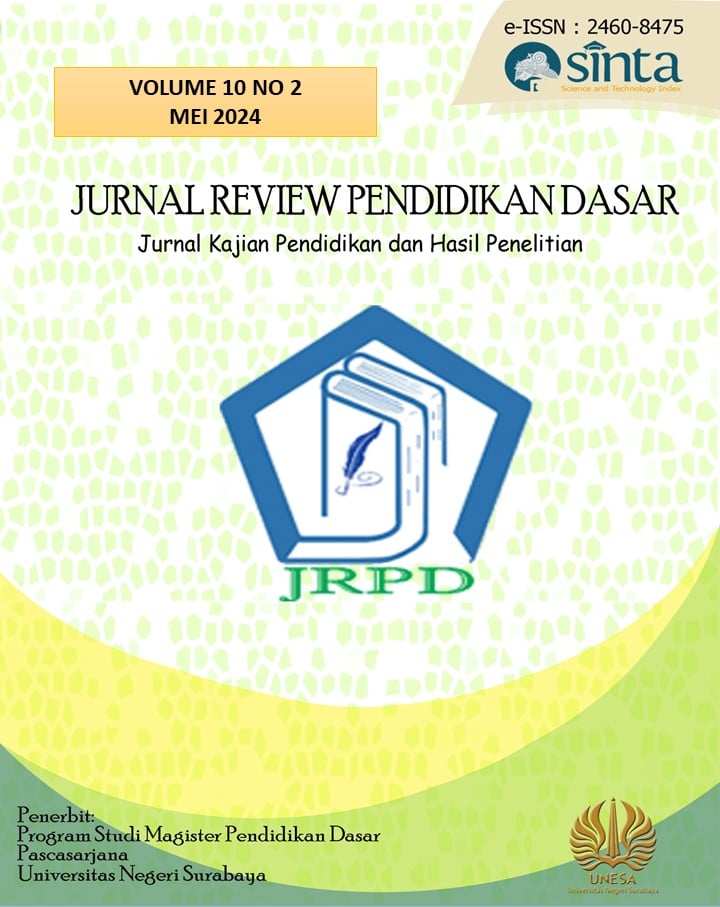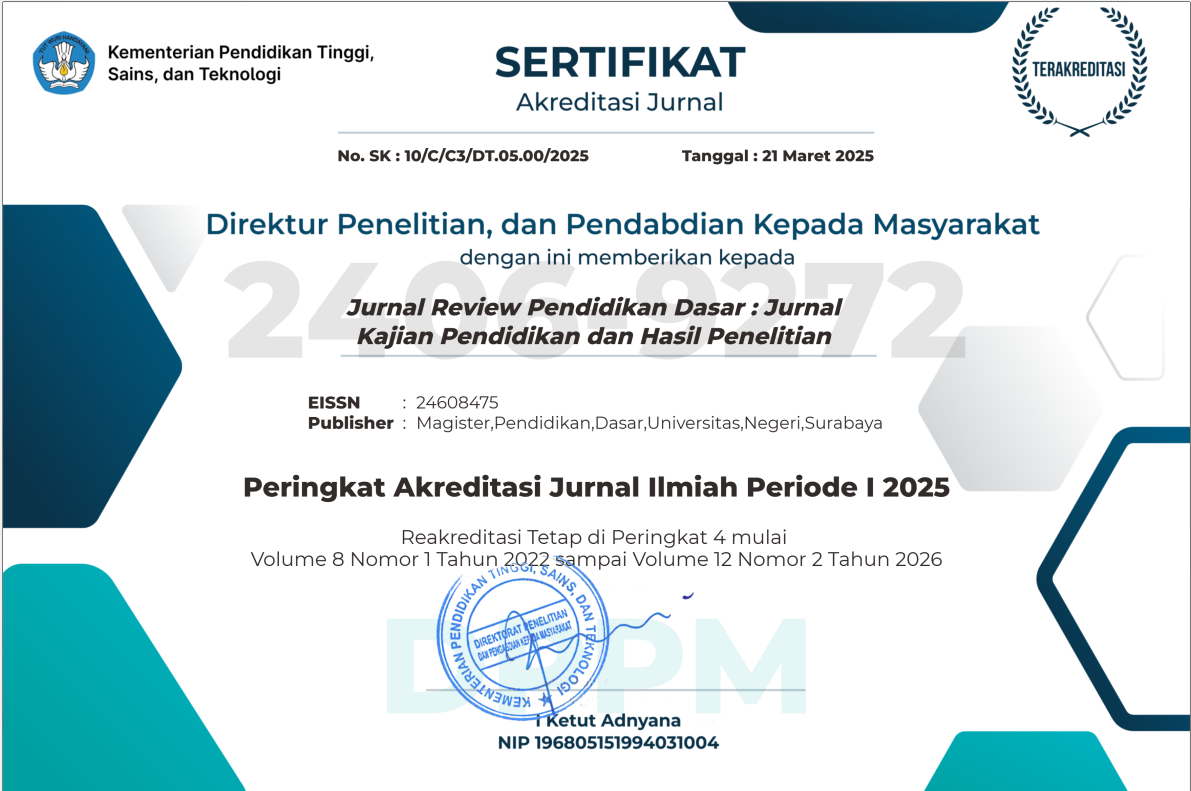Model Problem Based Learning dengan Pendekatan Culturally Responsive Teaching terhadap Keterampilan Berpikir Kritis Siswa SD
DOI:
https://doi.org/10.26740/jrpd.v10n2.p87-96Keywords:
critical thinking, culturally responsive teaching, problem based learningAbstract
The impact of the Fourth Industrial Revolution era demands students to possess critical thinking skills to keep up with technological advancements. However, a considerable number of students exhibit low levels of critical thinking skills. The aim of this research is to analyze the impact of the Problem-Based Learning model with a Culturally Responsive Teaching approach on students' critical thinking skills. This study employs a quasi-experimental research design using the Nonequivalent Control Group Design. Instruments used to measure critical thinking skills include pretests and posttests in the form of essay questions. Data analysis is conducted using descriptive techniques and t-tests. The research findings indicate that the implementation of the Problem-Based Learning model with a Culturally Responsive Teaching approach has a positive impact on students' critical thinking skills. This is evident in the final results of the experimental group, where the average score is 85.72 with a total of 28 students (N). In contrast, the control group has an average score of 58.44 with a total of 30 students (N). The T-test results show that the calculated t value is greater than the t table (10.933 > 1.672) and a significance value (sig.) of 0.000 < 0.05, leading to the rejection of the Null Hypothesis (Ho) and acceptance of the Alternative Hypothesis (Ha). Overall, these findings confirm the significant influence of implementing the Problem-Based Learning model with a Culturally Responsive Teaching approach on students' critical thinking skills.
References
Apriliani, E., Afandi, A., & Marlina, R. (2021). Memberdayakan Keterampilan Berpikir Kritis di Era Abad 21.
Chen, J., Wang, X., & Zheng, X. (2024). The Investigation of critical thinking disposition among Chinese primary and middle school students. Thinking Skills and Creativity, 51, 101444. https://doi.org/10.1016/j.tsc.2023.101444
Djonomiarjo, T. (2020). Pengaruh Model Problem Based Learning Terhadap Hasil Belajar. Aksara: Jurnal Ilmu Pendidikan Nonformal, 5(1), 39. https://doi.org/10.37905/aksara.5.1.39-46.2019
Hasanah, U., Sarjono, S., & Hariyadi, A. (2021). Pengaruh Model Problem Based Learning Terhadap Prestasi Belajar IPS SMP Taruna Kedung Adem. Aksara: Jurnal Ilmu Pendidikan Nonformal, 7(1), 43. https://doi.org/10.37905/aksara.7.1.43-52.2021
Kurniawan, H. (2020). Pembelajaran Era 4.0; Integrasi Penguatan Pendidikan Karakter, Keterampilan Abad 21, HOTS, dan Literasi dalam Perspektif Merdeka Belajar. Media Akademi.
Misla, M., & Mawardi, M. (2020). Efektifitas PBL dan Problem Solving Siswa SD Ditinjau dari Kemampuan Berpikir Kritis. Jurnal Ilmiah Sekolah Dasar, 4(1), 60. https://doi.org/10.23887/jisd.v4i1.24279
Nurtanto, M., Fawaid, M., & Sofyan, H. (2020). Problem Based Learning (PBL) in Industry 4.0: Improving Learning Quality through Character-Based Literacy Learning and Life Career Skill (LL-LCS). Journal of Physics: Conference Series, 1573(1), 012006. https://doi.org/10.1088/1742-6596/1573/1/012006
Rahayu, R. D. Y., Mawardi, M., & Astuti, S. (2019). Peningkatan Keterampilan Berpikir Kritis dan Hasil Belajar Siswa Kelas 4 SD melalui Model Pembelajaran Discovery Learning. JPDI (Jurnal Pendidikan Dasar Indonesia), 4(1), 8. https://doi.org/10.26737/jpdi.v4i1.927
Sani, R. A. (2019). Pembelajaran Berbasis HOTS Edisi Revisi: Higher Order Thinking Skills. Tira Smart. https://books.google.co.id/books?id=GrfrDwAAQBAJ
Umar, U., Kaharuddin, A., Fauzi, A., Widodo, A., Radiusman, R., & Erfan, M. (2020). A Comparative Study on Critical Thinking of Mathematical Problem Solving Using Problem Based Learning and Direct Intruction. Proceedings of the 1st Annual Conference on Education and Social Sciences (ACCESS 2019). https://doi.org/10.2991/assehr.k.200827.079
Downloads
Published
How to Cite
Issue
Section
License
Copyright (c) 2024 Jurnal Review Pendidikan Dasar : Jurnal Kajian Pendidikan dan Hasil Penelitian

This work is licensed under a Creative Commons Attribution 4.0 International License.
 Abstract views: 2010
,
Abstract views: 2010
, PDF Downloads: 1152
PDF Downloads: 1152




